Nebula Container Orchestrator
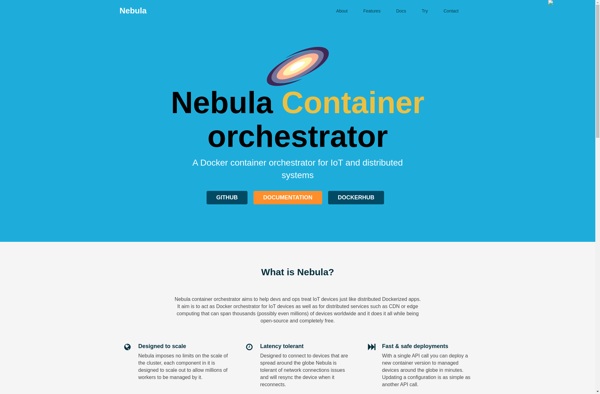
Nebula Container Orchestrator: Lightweight Open-Source Platform
Automate deployment, scaling and management of containerized services with Nebula Container Orchestrator, a portable and extensible open-source platform designed for efficient orchestration.
What is Nebula Container Orchestrator?
Nebula Container Orchestrator (Nebula) is an open-source container orchestration and management platform. It allows users to easily deploy, manage and scale containerized applications across clusters of hosts.
Some key features of Nebula include:
- Deployment automation - Nebula can deploy application stacks with a single command across a cluster
- Auto-scaling - It can automatically scale applications based on demand or defined metrics
- Health monitoring - Nebula monitors container and node health and restarts or reschedules containers in case of failures
- Service discovery and load balancing - It comes bundled with a DNS and proxy solution for service discovery and load distribution
- Portable architecture - Nebula is lightweight and available on most Linux platforms allowing on-prem or cloud deployment
- Extensibility and flexibility - Users can easily integrate third party plugins and tools like monitoring, security or storage solutions
Overall, Nebula Container Orchestrator aims to provide users with a robust and highly scalable container management platform that simplifies running containerized applications in production.
Nebula Container Orchestrator Features
Features
- Self-hosted container orchestration
- Supports Docker and containerd runtimes
- Built-in service discovery
- Rolling updates
- Health checks
- Resource quotas
- Access control policies
- CLI and GUI
Pricing
- Open Source
- Free
Pros
Cons
Official Links
Reviews & Ratings
Login to ReviewNo reviews yet
Be the first to share your experience with Nebula Container Orchestrator!
Login to ReviewThe Best Nebula Container Orchestrator Alternatives
Top Network & Admin and Container Management and other similar apps like Nebula Container Orchestrator
Here are some alternatives to Nebula Container Orchestrator:
Suggest an alternative ❐Kubernetes
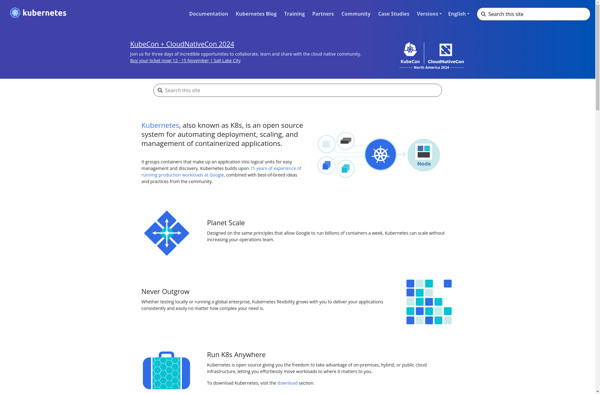
Rancher
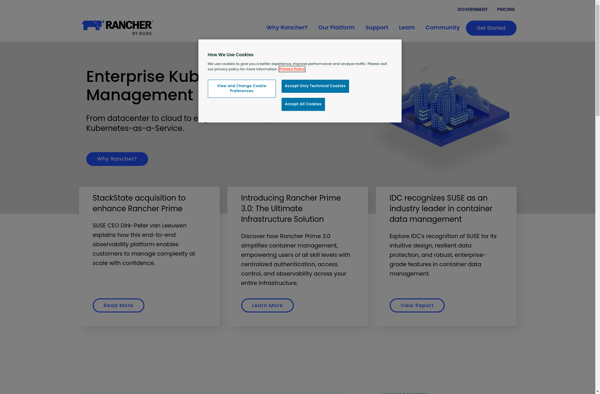
Heroku

OpenShift

Microsoft Hyper-V Server
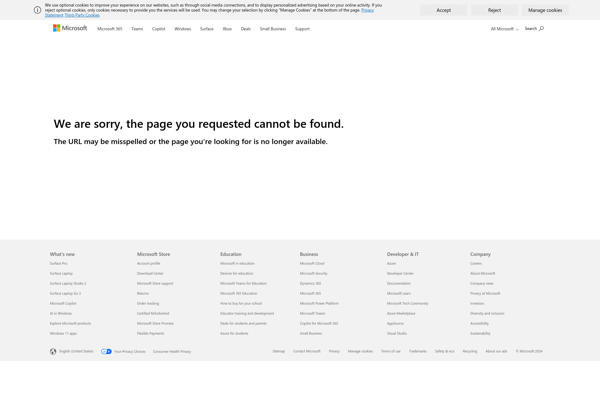
Rancher Desktop
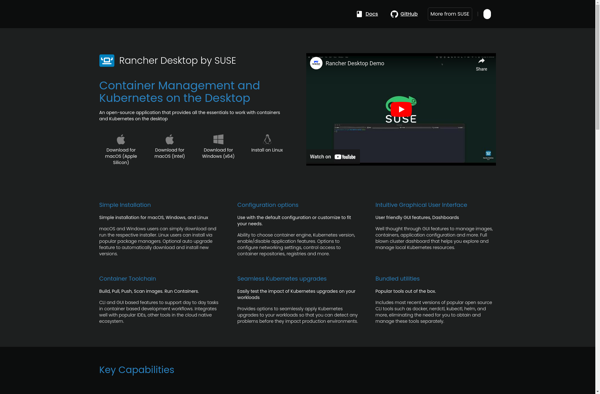
HashiCorp Nomad
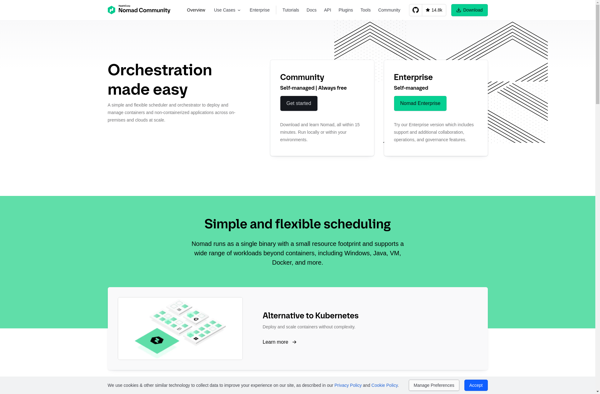
Docker Swarm
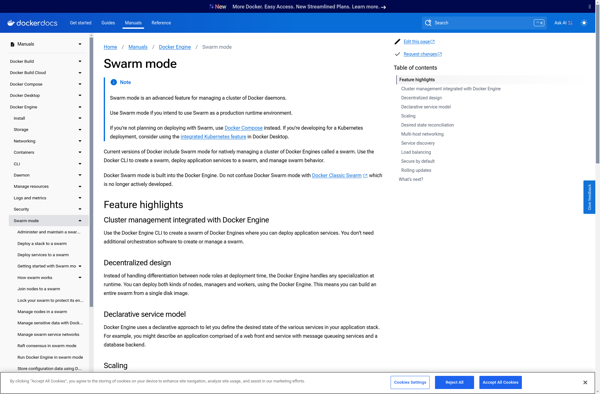
Qovery

Apache Mesos
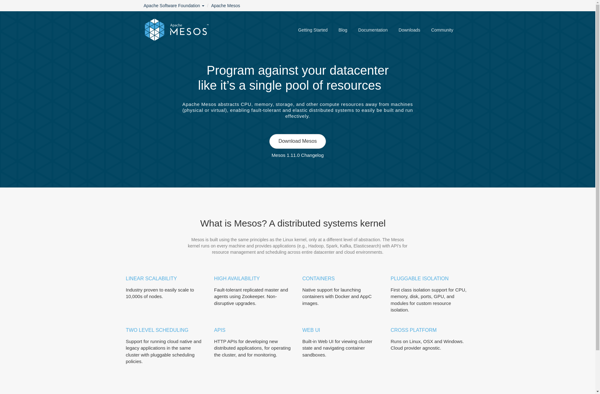
Dokku
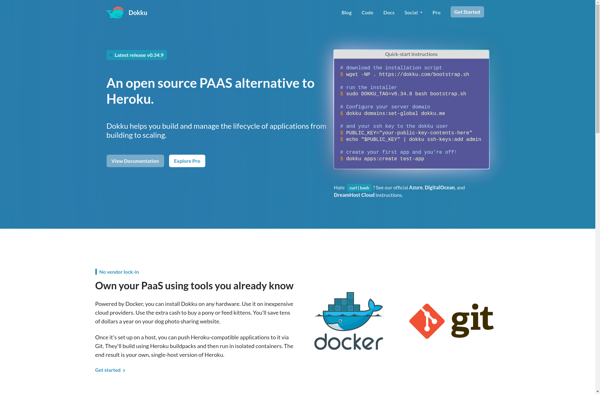
Mesosphere DCOS
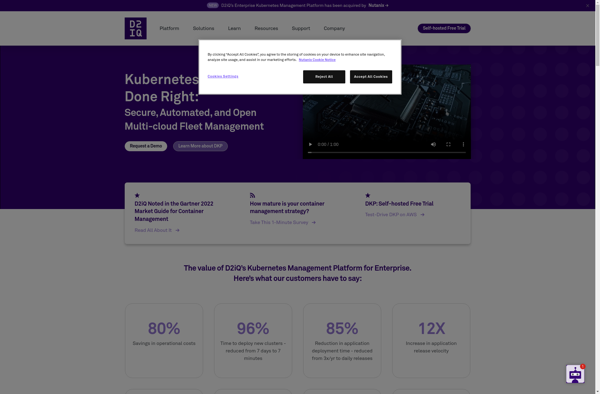
Cycle.io
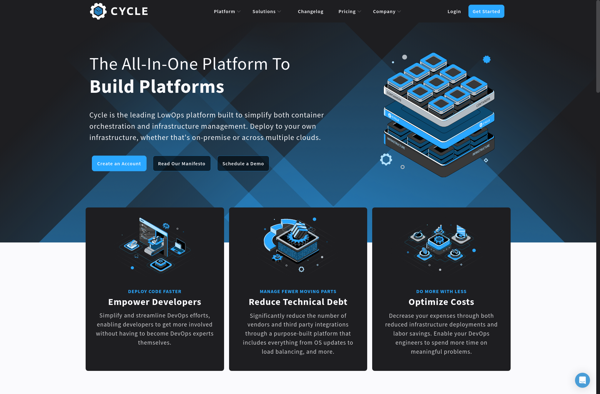
Dockercraft
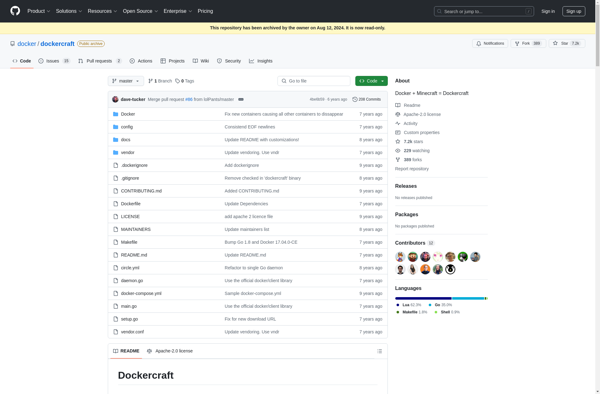
DataCol
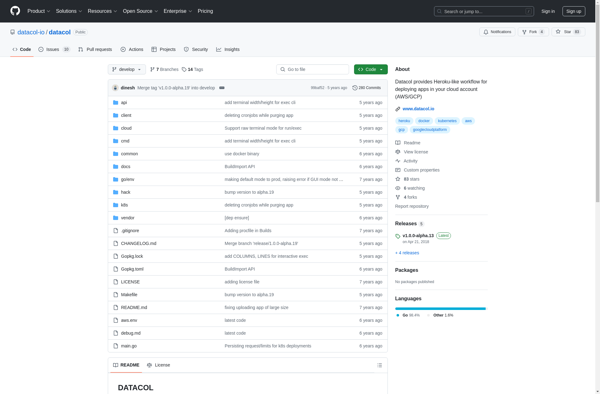
Panamax
TuTum

Stackato
